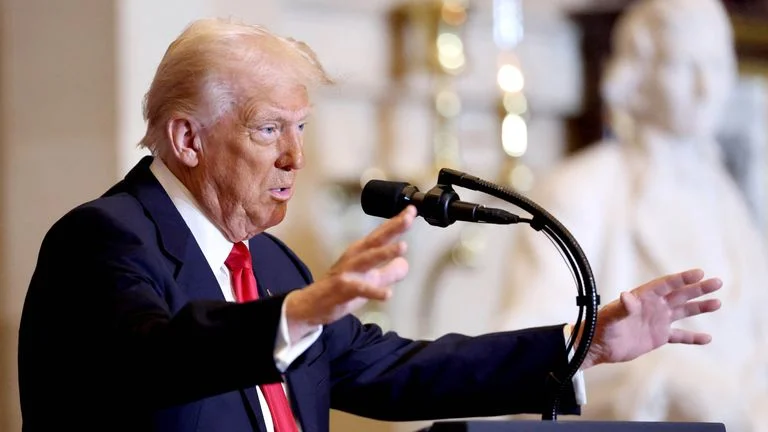Trade negotiations between the United States and the European Union advanced rapidly on Wednesday, as reported by representatives from both sides, with the urgency fueled by President Donald Trump’s doubling of tariffs on steel and aluminum imports.
The new 50% tariffs, effective from 12:01 a.m. Wednesday June 4, 2025, have sent ripples through the global economy, intensifying the push for a trade deal before a looming July 8 deadline for additional reciprocal tariffs.
The EU’s trade negotiator, Maros Sefcovic, and U.S. Trade Representative Jamieson Greer described their Paris meeting as constructive, signaling progress in addressing trade imbalances.
“The discussions are now very concrete,”Sefcovic said, expressing optimism about reaching a deal. Greer echoed this sentiment, highlighting the EU’s willingness to achieve “reciprocal trade.”
Trump’s Tariffs Disrupt Global Markets
The tariff hike, which doubled levies on steel and aluminum from 25% to 50%, applies to all trading partners except the UK, which secured a preliminary trade agreement.
The move has jolted markets, particularly affecting Canada, the largest exporter of aluminum to the U.S., and Mexico.
Canadian Prime Minister Mark Carney called the tariffs “illegal,” while Canada’s labor union Unifor urged retaliatory measures.
The EU, already facing 25% U.S. tariffs on steel, aluminum, and cars, expressed regret over the increase, with Sefcovic noting shared challenges like steel overcapacity.
Trump’s trade policy, centered on reducing the U.S. trade deficit through tariffs, aims to boost domestic manufacturing but has drawn criticism.
The Congressional Budget Office reported that the tariffs, in place as of May 13, will reduce U.S. economic output.
Meanwhile, global trade faces further strain from China’s restrictions on critical mineral exports, impacting European auto parts plants and companies like BMW.
Impact on Businesses and Consumers
The tariffs are expected to raise costs across industries, from autos to aluminum beer cans, according to trade policy expert Marc Busch.
The American Automotive Policy Council warned that higher metal prices could disadvantage U.S. manufacturers globally.
Economist Bernard Yaros from Oxford Economics estimated a 0.4% to 0.5% cut in business spending on equipment, significantly impacting investment.
The Aluminum Association called for exemptions for allies like Canada to ensure access to critical materials.
Urgency for a Trade Deal
Wednesday marked a critical deadline for trading partners to submit “best offers” to avoid Trump’s broader reciprocal tariffs, set to take effect after a 90-day pause ends on July 8.
While the UK has a preliminary framework, other nations, including the EU, are racing to finalize deals.
The EU aims for a comprehensive agreement by July 9, with posts on social media reflecting optimism from leaders like Ursula von der Leyen about advancing talks swiftly.
As negotiations continue, the global economy braces for potential further disruptions, with markets cautiously optimistic that Trump may soften his stance.




















